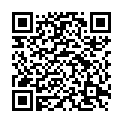|
|
|
| Module code: MBG21-11 |
|
|
4S (4 hours per week) |
|
5 |
| Semester: 3 |
| Mandatory course: yes |
Language of instruction:
German |
Assessment:
Term paper
[updated 30.10.2023]
|
MBG21-11 (P311-0185) Management and Professional Pedagogy in Health Care, Bachelor, ASPO 01.10.2021
, semester 3, mandatory course
|
60 class hours (= 45 clock hours) over a 15-week period.
The total student study time is 150 hours (equivalent to 5 ECTS credits).
There are therefore 105 hours available for class preparation and follow-up work and exam preparation.
|
Recommended prerequisites (modules):
MBG21-1 Academic Methodologies and Study Skills I
MBG21-6 Scientific Work II
MBG21-8 Vocational Pedagogy in Health Care II
[updated 27.03.2025]
|
Recommended as prerequisite for:
MBG21-17 Health Care Management IV
MBG21.M.41 Management in Hospitals
MBG21.M.42 Management of Inpatient and Outpatient Facilities
MBG21.M.43 Change Management
MBG21.M.44 Risk Management
[updated 30.05.2024]
|
Module coordinator:
Studienleitung |
Lecturer:
Prof. Dr. Dagmar Renaud
[updated 27.03.2025]
|
Learning outcomes:
Occupational Health Management
After successfully completing this module, students will have the following skills and competencies:
The will understand the interdependencies between an organization, work and health.
They will have basic knowledge about the framework and objectives of occupational health management and workplace health promotion.
They will be able to assign the characteristics of a healthy and unhealthy organization.
They will be familiar with selected methods and instruments for analyzing, implementing and evaluating occupational health management and workplace health promotion measures resp.
processes.
They will be able to apply selected methods and instruments for the analysis, planning, implementation and evaluation of BGM/BGF measures or processes.
They will be able to derive suitable measures from the analysis of the problem.
Students will be able to design an occupational health management program together with the addressees.
They will be able to communicate and cooperate with external stakeholders (e.g. service providers, health insurance companies).
Students will be able to reflect on health management as a management task.
They will be able to identify the influence of an organization on the health and well-being of its addressees.
Students will be able to base their occupational health management on an understanding of the bio-psycho-social system.
Project Management
After successfully completing this module, students will have the following skills and competencies:
Students will be able to:
They will be able to explain the characteristics and phases of projects.
They will be able to name standards in and dimensions of project management.
Students will be able to describe the objectives of and the methodological approach to a project in oral and written form and in a manner appropriate to their target group.
They will be able to recognize potential for conflict in (interdisciplinary) collaborations.
Students will be able to apply the methods of project management to all the project phases of their own fictitious project topic in a targeted and effective manner.
They will be able to apply digital tools to project management and classify them.
They will be able to develop solutions to conflicts within the course of (interdisciplinary) collaborations.
Students will be able to justify their methodological approach to a project to other stakeholders.
They will be able to provide respectful feedback to team members regarding work progress and results.
They will be able to coordinate, lead, and document work group meetings.
Students will be able to reflect on the role and responsibilities of project leadership
[updated 11.01.2024]
|
Module content:
Occupational Health Management
Basics and principles of occupational health management, health management and health promotion
Legal foundations and framework.
Necessities, challenges and fields of action in occupational health management and promotion
Bio-psycho-social approach to occupational health management
Physical, psychological and social strains, stresses and resources in everyday working life.
Occupational health management strategies, tools, instruments and indicators in the analysis, planning implementation and evaluation phases
Selected occupational health management/promotion approaches (e.g. behavioral and situational prevention, demography management, leadership and health)
Possibilities for shaping occupational health management (e.g. health circles, effects of social relationships in the working environment).
Project Management
1. Introduction: What is a project?
General project flow, project types
2. The project definition
Determining objectives, defining objectives, operationalizing objectives
3. Project planning
Planning project parameters
Planning the quality dimension
Creating project specifications
Time dimensions, structure plans
Calculating costs, milestones
4. Project management
Controling work processes, feedback, team cooperation, interim reports
5. Project completion
Successfully completing a project, evaluation, delivering results
[updated 19.05.2025]
|
Teaching methods/Media:
Blended learning
[updated 15.11.2021]
|
Recommended or required reading:
Will be announced at the beginning of the module.
[updated 30.10.2023]
|

